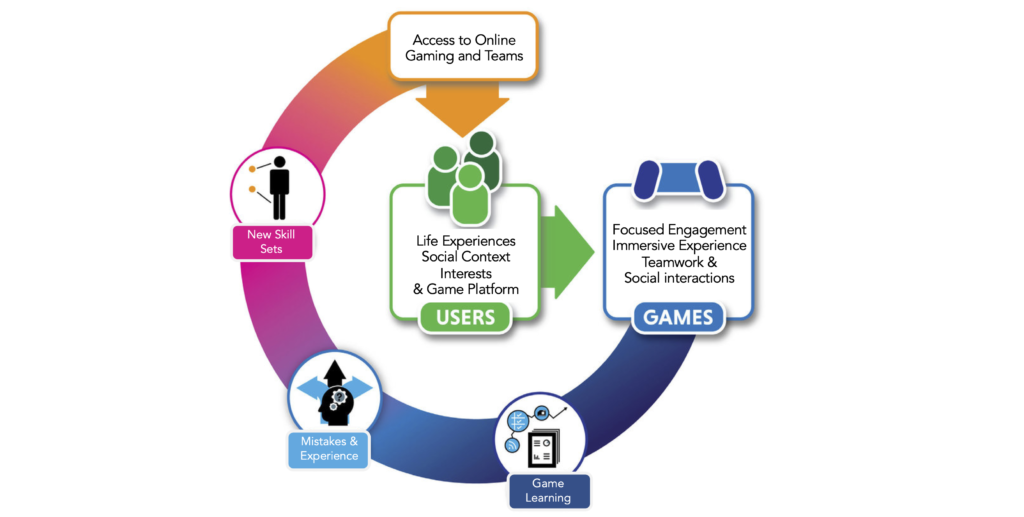It’s About the Game, The Goal, Not the Players
What kids, Xbox, and Nintendo Switch have taught us about virtual teams and Zoom.
When I watched my then 15-year-old son play Fortnight on his Nintendo Switch I realized he was playing with kids in New Zealand, Germany, and New York. The same with Xbox games. They form global teams, create goals, and mutually connect. I was amazed at how failure was part of the game as well as forgiveness, group learning and moving on. The alliances built resilience and as he played he became a master in parts of the game very quickly. The key is effective collaboration for teams. How else can you win?

Kids take risks, make connections often without judgment.
There is also a basis of research that also shows that online gamers create networks of social behavior and connections that extend beyond their online networks. Trust becomes a key part of this. That is the bonding that occurs: team effort to achieve goals also brings to bear a value system that is based on how the players live and exist in the rest of their world, and the players tend to influence each other in real-world social networks.
Kids seem to figure out how to communicate and get things done faster and with more effective action. It’s all about knowing how you’re going to get to the goal and being willing to make mistakes getting there.

Businesses and teams are shaping experiences globally with Zoom meetings.
Now we adults have jumped in or, should I say, we’ve been thrown in. Suddenly the world has shifted with COVID-19; between massive global quarantines and social distancing and closed offices everything has changed. We’ve now all been on Zoom calls; teams, clients and social groups are now meeting online. What’s this mean for us? This teaches us something about the dramatic effectiveness of remote teams. We don’t have to be in one place. That meetings are focused on specific times, and results and can happen faster and quicker. We can learn about each other and accountability.
Adults do not want to take risks in new environments and looking bad. Zoom is a risky place to be collaborating for your projects when you don’t really know what’s happening next. Status is an important background driver.

Forget the formality—connect and focus on experimentation, ideas and the goals.
Maybe the goal is to collaborate more and risk losing more and keep moving. Not to be as formal with meetings but have a structure to the goals and see who makes it happen. Unfamiliarity may be more important and the creative focus is the key, allowing ideas to drive solutions to meet goals. The lack of hierarchy in a matrix of people puts everyone on the same level. This puts us with those kids on the Xbox. Let’s focus on great solutions and and the creative ideas that lead to them!
